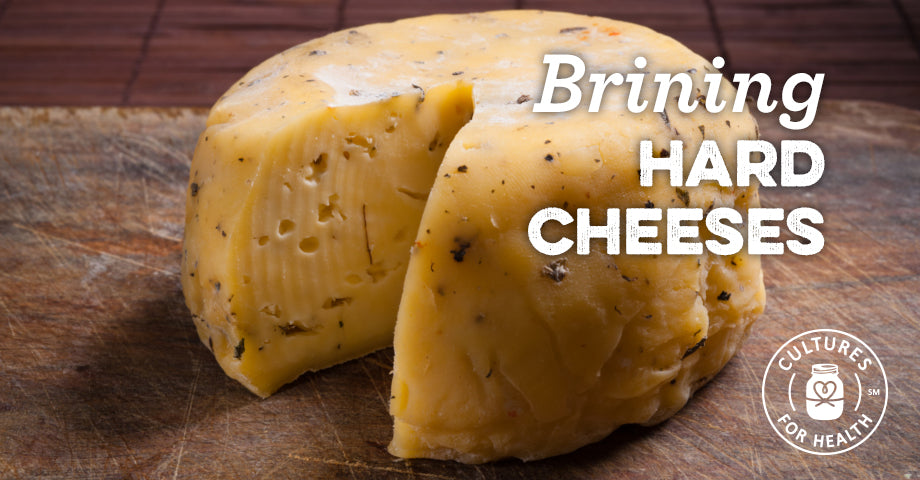
WHY BRINE?
Brining is generally called for on hard cheeses that require a short aging period. Some cheeses are not salted before pressing; rather, they are brined directly after pressing. A brine bath is measured according to salinity, or its strength according to the salt-to-water ratio. Your recipe will tell you how strong your brine should be depending on the type of cheese you are making.
Brining adds a more full, salty flavor and it also discourages bad bacterial growth on the surface of the cheese. Brine can also be flavored with things such as beer, ale, spices, wine, or liquor. In any case, brining helps to develop the rind and overall flavor of your cheese.
GENERAL RATIOS FOR MAKING SALT BRINE
Light Brine
For light brine, dissolve 13 ounces of cheese salt thoroughly into 1 gallon of cool water. Light brine is around 10% salinity.
Medium Brine
Medium brine is made using around 26 ounces of salt to one gallon of water, producing 20% salinity.
HOW TO MAKE A BRINE
To make brine, thoroughly dissolve the salt into room temperature water, then chill it in the refrigerator until you are ready to use it. Brine should generally be around 55°F before use, with your cheese being about the same temperature. Sometimes you will need to brine the cheese while it is still warm, though, so check your recipe for specific directions.
HOW TO USE BRINE
Brine is used in one of three ways: as a soak, a spray (put in an atomizer and spritzed onto the surface), or a wash. Your cheese recipe will direct you as to which method to use.
After you have used the brine, it can be strained (if needed) and refrigerated for use on future cheeses. But if the brine is left at any temperature above 60°F for an extended period of time, it is best to toss it and make a new brine to ensure a safe brining process for your next cheese project.















